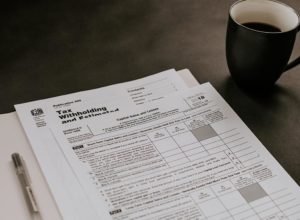IR35
 Anti-avoidance rules generally know as “IR35” were introduced in April 2000 largely to counter what HMRC perceived as an unfair tax and National Insurance (NI) advantage obtained by individuals (and the organisations they worked for). HMRC wanted to target situations where an individual ceased employment “on a Friday” and “returned to the same job on a Monday” but providing their services through an intermediary, typically a company which they wholly or mainly owned. IT contractors were at the forefront of HMRC’s attack, but it had been pressuring the government for years for IR35 style legislation. The IT industry’s abuse (in HMRC’s eyes) of the tax system was just the straw that broke the camel’s back.
Anti-avoidance rules generally know as “IR35” were introduced in April 2000 largely to counter what HMRC perceived as an unfair tax and National Insurance (NI) advantage obtained by individuals (and the organisations they worked for). HMRC wanted to target situations where an individual ceased employment “on a Friday” and “returned to the same job on a Monday” but providing their services through an intermediary, typically a company which they wholly or mainly owned. IT contractors were at the forefront of HMRC’s attack, but it had been pressuring the government for years for IR35 style legislation. The IT industry’s abuse (in HMRC’s eyes) of the tax system was just the straw that broke the camel’s back.
Personal services
IR35 applies only to services provided by individuals in circumstances that, if not for the existence of one or more intermediaries in the contract to supply for those services, would be an employee of the person or organisation they work for (usually referred to by HMRC as “the engager” or the “end client”).
Effect of IR35
Where IR35 applies, unless the engager is a government body, the intermediary, e.g. the worker’s company, must calculate and pay PAYE tax and NI contributions as if the amount they are paid by the engager had been paid to the worker as an employee.
The intermediary is entitled to make certain deductions before calculating the PAYE tax and NI. Broadly, the deductions allowed are; a fixed rate notional sum to allow for the intermediaries running costs, plus amounts for expenses which if the worker were an employee, they would be entitled to a tax deduction for. There are a number of special extra restrictions which apply, such as for travel expenses.
Engager is a government body
Since 5 April 2017 where the services provided by the worker are to a government body the IR35 rules are modified so that the responsibility for determining if they apply is that of the engager and not the intermediary, e.g. the worker’s company.
It’s expected that this modification will be extended so that it applies to all working arrangements where IR35 might be in question. The government is continuing to consult on this and other IR35 matters .
